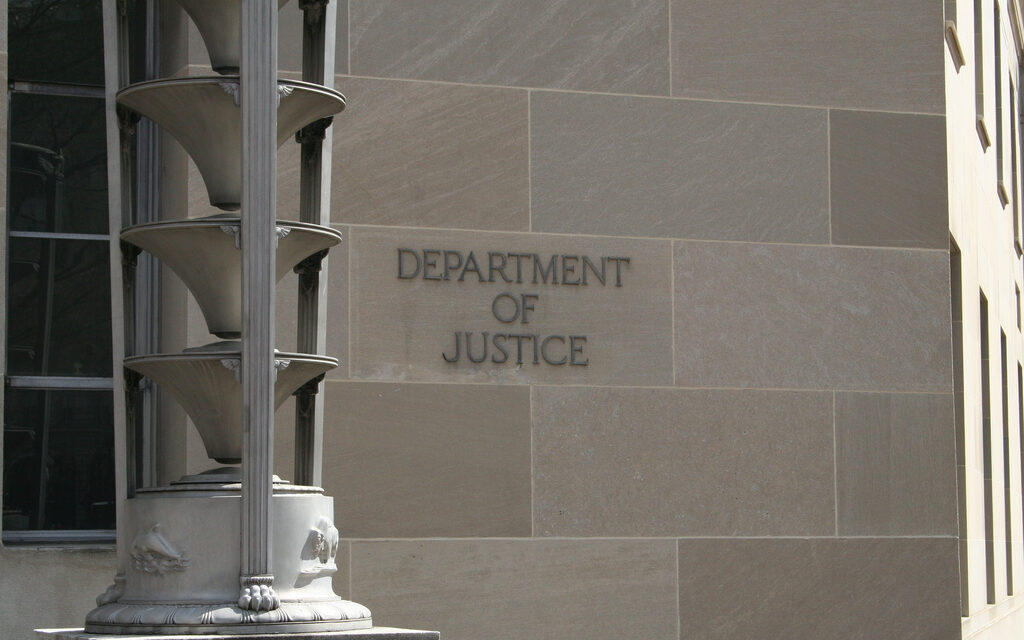Before we go to battle against Judge Roberts, we need to decide an important question: What do we want out of a Supreme Court justice?
A few days ago, I argued that Roberts was wrong to uphold the President’s right to detain “enemy combatants” on July 15th in Hamden vs. Rumsfeld. One poster argued that Robert’s position was legally correct and that he was simply applying the law as it was written.
Here is his argument:
They looked at the jurisdictional issues and at the acts of Congress supporting the Executive branches actions and held that the arguments brought by the claimant were unsupported. Roberts was on the panel that was unanimous in its decision.
Simply put the President has a right to declare individuals enemy combatants as long as he follows the authority granted him by Congress and doesn’t violate any international treaty approved by Congress.
If Congress wants to stops this they can, simply and easily. Rescind the proclamation and authority granted in the last 4 years and/or seek to modify the Geneva Convention so that the detainees meet the clear definition of a prisoner of war. They have done neither.
Hamden argued that he should be entitled to seek individual enforcement of rights under the Geneva Convention. The Court disagreed for various reasons base upon decades of Supreme Court precedence. The Concurring opinion added the fact that the Treaty is bilateral and in this case there is no corresponding signatory so Hamden cannot rely on it at all.
Finally you add that the Tribunals violate due process. That was not before this Court and a Cir Ct is not going to sua sponte address a due process argument without any basis. These tribunals have been the subject of other decisions where due process has been addressed and the groundwork laid for subsequent challenges by the detainees. However, Military Tribunals with different rules of evidence, burdens of proof and the like (as compared to the Federal Court system) have survived due process challenges in the past.
Yell at Bush all you want but sticking it to Roberts is silly. I note that the district court didn’t toss this on due process grounds sua sponte either.
The Court can only rule on the questions before it.
Under your process the Court can just intercede willy-nilly and decide any issue at any time. That would be anarchy.
I believe that the courts should abide by Stare Decisis and avoid Sua Sponte 99% of the time. Stare Decisis is the accepted practice where a judge decides cases strictly on legal precedent and the intent of the legislature in passing laws. Sua Sponte is where a judge addresses points not raised by the parties.
I am fully aware of the dangers of departing from such practices. However, there comes a point in time where a judge must go beyond established precendent and become the conscience of the nation. This happens when the practice in question is so antithetical to the universal values of our country and our Constitution that upholding previous precedent is wrong.
This is what the Warren Court did when they took a moral stand on the issues and declared that “separate but equal” was morally wrong and indefensible. They overruled their own ruling and declared that “separate but equal” was a myth designed to promote White Supremacy.
Roberts may have properly applied the law when declaring that the administration was legally justified in their extraordinary rendition policy. And yet, he misses the mark badly. Torture is so antithetical to our universal values and our Constitution that going beyond the normal realms of legal precedent was justified in this case.
I recognize the dangers of this. The right may argue that abortion is a matter of life and death and that the Supreme Court would be morally justified in overturning Roe vs. Wade. However, that is a gross oversimplification of the question.
In fact, universally, we as a society value a woman’s life over a fetus. Ask any right-winger if they support the death penalty for a woman who has an abortion, and they will almost always get cold feet. Yet, they will support the death penalty for someone who commits murder.
In addition, the definition of when life begins is not scientifically established beyond the obvious point of birth. When a person defines life as beginning depends on their values. A pro-choicer may argue that life does not begin until the cerebral cortex is formed at 20-24 weeks. A pro-lifer may argue that life begins at conception.
The question of when life begins is not a settled question other than the fact that we as a society universally value someone who is born over a fetus. In my judgment, there will always be a perpetual tension between the opposing sides other than what I just stated and the growing belief among some pro-choice advocates that abortion should become safe, legal, and rare.
In this kind of a situation, a judge should not impose one’s personal values on other people. To do so is an act of religious faith and would violate the wall of separation of church and state, a long-established Constitutional principle. That is a big difference between Brown and the abortion issue.
A good judge must do more than just be a legal computer. A judge must serve as the conscience of the executive and judicial branches. One of the main complaints that Jesus had about the Pharisees was exactly that — they failed to serve as the conscience of the Jewish nation, instead getting bogged down in meaningless legalisms. In the same way, Judge Roberts fails to act as the conscience of the executive and legislative branches.
Judge Roberts may very well have a brilliant legal mind and have an outstanding command of the law. But he fails to recognize that one must go beyond that if he is to effectively fulfill his duty as a SCOTUS judge. Therefore, he is not qualified to serve as a Supreme Court justice.







